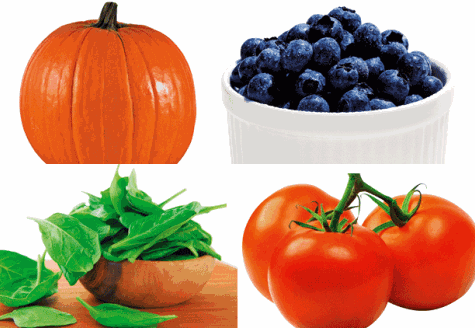Business & Finance Club - Diet : Cancer is a complex disease, its growth dependant on several processes that allows it to invade the body's tissues. This complexity is such that a diet rich in vegetables, allowing for the consumption of a variety of cancer-fighting compounds, is essential in preventing the disease.
What we refer to as cancer is in fact a generic term that encompasses more than 200 distinct diseases that all have one thing in common: they are caused by uncontrollable cell growth inside the body. Cancer's progression is a complex phenomenon that involves multiple changes to the function of certain genes, changes that can, collectively, allow cancer cells to get around our natural defense system and invade our organs.
The number of processes involved in cancer's progression is the main challenge that all cancer-fighting strategies go up against. For example, even if we know that a diet rich in vegetables can reduce the risk of several types of cancer, no one food contains all of the cancerfi ghting compounds that can act on all of the processes involved in the disease's progression.
To effectively prevent cancer, it is important not only to consume large quantities of vegetables, but to diversify your choices.
Each type of vegetable contains distinct compounds that can interfere with different targets involved in the uncontrolled growth of cells.
For example, a diet rich in crucifer family vegetables, as well as vegetables from the garlic family, will help the body eliminate carcinogenic substances. This reduces their ability to pro-v oke DNA mutation and help in the development of cancer cells.
The body's absorption of certain products, such as tea or berries, will also prevent the formation of new blood vessels used in the growth of microtumours, allowing them to remain in a dormant state. In other words, attention must be paid not only to the quantity of these foods being consumed, but also to ensuring you are consuming a variety of them.
LUNG CANCER An example of the importance of consuming a large variety of vegetables comes from a study examining the impact of these foods on the risk of lung cancer in smokers. More than 85% of lung cancers are directly linked to smoking, and the risk of lung cancer is approximately 200% higher among regular smokers compared to non-smokers. There is therefore no doubt that quitting smoking remains the best way to significantly reduce one's risk of lung cancer.
That said, it is interesting to note that certain places with a high population of smokers, notably Asian countries, have a lower incidence of lung cancer than some countries with fewer smokers. It is therefore possible that certain lifestyle factors can counteract, at least partially, the catastrophic effect of cigarette smoke on the development of lung cancer.
That is precisely the conclusion reached by a team of European researchers following the analysis of the eating habits of more than 450,000 people over a nine-year period. They observed that smokers who consumed a high and varied quantity of vegetables (crucifers, garlic, greens, mushrooms, root vegetables) had an approxi mat e l y 25% less chance of developing lung cancers than those with repetitive eating habits with little variety in their vegetable choices.
An interesting point in the study is that this protector effect is not associated with the overall quantity of vegetables consumed by smokers, but rather with the diversity of the fruits and vegetables present in their diets.










